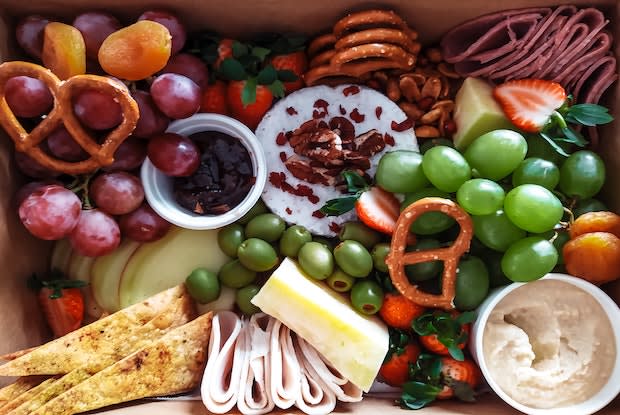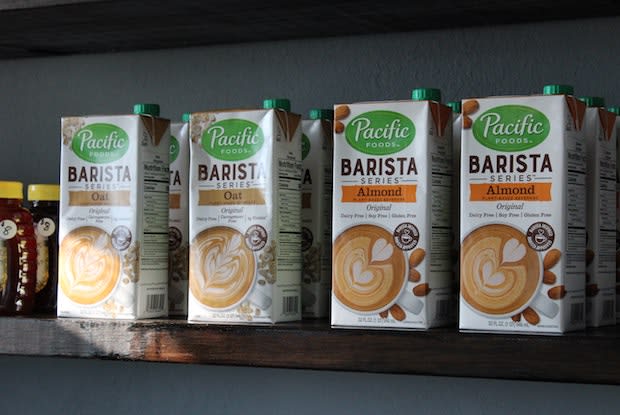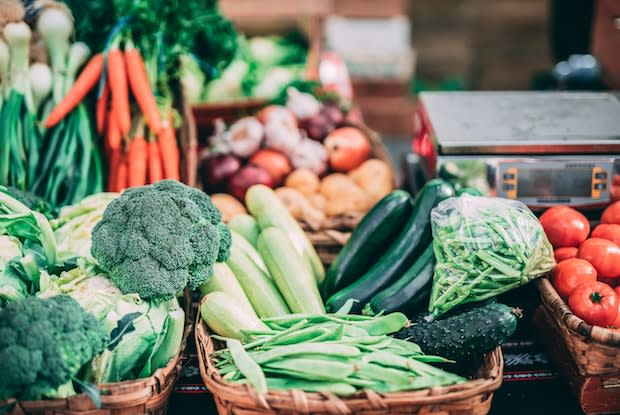Table of Contents
VI. How do I Eat Away from Home?
Develop a Food Schedule
Living with IBS may feel like a minefield when it comes to your diet. This stomach condition is usually a lifelong issue that causes stomach cramps, bloating, diarrhea, and constipation. These symptoms may come and go, but every IBS patient has food triggers that often worsen symptoms.
Once your doctor diagnoses you with IBS, they may prescribe medications to improve your symptoms. You may use Xifaxan for IBS, Linzess, or generic lubiprostone. Along with these drugs, you should find a diet plan that works for you. Over time, many people will learn what they can and cannot eat, but this usually takes a lot of trial and error.
To start your IBS treatment, you may want to tailor how and when you eat in a day. Dieticians recommend three balanced meals a day with two to three snacks. Read on to learn more about how to eat successfully with IBS. [1]
If you have IBS, fiber may be helpful for some but can adversely affect others. If you are a newly diagnosed IBS patient, you may want to try a high-fiber diet. Fiber helps aid in stomach movement and helps prevent constipation. You should eat around 20 to 35 grams of fiber. This may sound easy, but the National Institute of Diabetes cites that most people only eat five to 14 grams of fiber a day. High-fiber foods include: Increasing fiber can worsen gas and diarrhea for some IBS patients. If you experience this, you should eliminate insoluble fiber from your diet. You may want to focus on soluble fiber in apples, berries, carrots, and oatmeal. Insoluble fiber is harder for the body to digest. These types of foods include nuts, tomatoes, raisins, broccoli, and cabbage. You may want to try eliminating insoluble fiber to see if that works for your IBS symptoms. [2] Lactose products are difficult for many people to digest, regardless of the presence of IBS. Johns Hopkins reports that 70 percent of adults do not produce an adequate amount of lactase. Lactase is the enzyme necessary to break down the sugar in milk and allow for proper intestinal digestion. This results in undigested lactose in the colon, which can lead to bacteria ferment and cause gas. [3] This process can occur to anyone, but these symptoms may be elevated if you also have irritable bowel syndrome. To avoid excessive bloating and gas, you may want to eliminate dairy from your diet to see if it makes a difference to your IBS symptoms. Luckily, hundreds of lactose-free products are on the market, so you do not have to give up milk or cheese altogether. You may want to reach for milk made from rice, soy, almonds, or oats. [4] Consuming high-fat foods can significantly increase your risk of several dangerous health complications. This is true for everyone, but especially true for IBS patients. Foods high in fat can worsen symptoms because they are low in fiber and can contribute to constipation. If you have mixed IBS, high-fat foods can increase the frequency of diarrhea as well as constipation. You may want to adopt a low-fat diet to improve your heart health and IBS symptoms. Your doctor may recommend avoiding fried foods and animal fats. Instead, you should incorporate the following foods into your diet: FODMAP is an acronym that stands for fermentable oligo-, di-, mono-saccharides and polyols. This represents a short chain of carbs that are resistant to digestion. These carbs make the body pull more water out of the bowel, causing more bloating, diarrhea, and gas. Many doctors recommend a low FODMAP diet if you are experiencing IBS symptoms. Not all carbohydrates are FODMAPS, so it is important to know which foods to restrict. You may want to cut these foods out for six to eight weeks to see if you notice any changes in your IBS condition. For the best outcome, try eliminating the following: You may feel nervous when you leave the comfort of your fully-stocked refrigerator of IBS-friendly foods. Having IBS may make it difficult to indulge at potlucks or parties, but there are ways around these challenges. If you are attending a dinner party, you may want to let the host know your dietary restrictions ahead of time. If this is not possible, you may want to stick with the foods you know are safe for you and eat small portions of any trigger foods. Other tips include avoiding fried food, limiting spice, and avoiding oil-heavy foods. Overeating can also spur on IBS symptoms, so try to keep your portions manageable. [1] Visit Canadian Pharmacy Service today to purchase discount IBS medications like Linzess, Xifaxan (rifaximin), or lubiprostone. The content in this article is intended for informational purposes only. This website does not provide medical advice. In all circumstances, you should always seek the advice of your physician and/or other qualified health professionals(s) for drug, medical condition, or treatment advice. The content provided on this website is not a substitute for professional medical advice, diagnosis, or treatment.
Experiment with Fiber
Find Dairy Alternatives

Cut Out High-Fat Foods
Try the Low FODMAP Diet

How do I Eat Away from Home?
